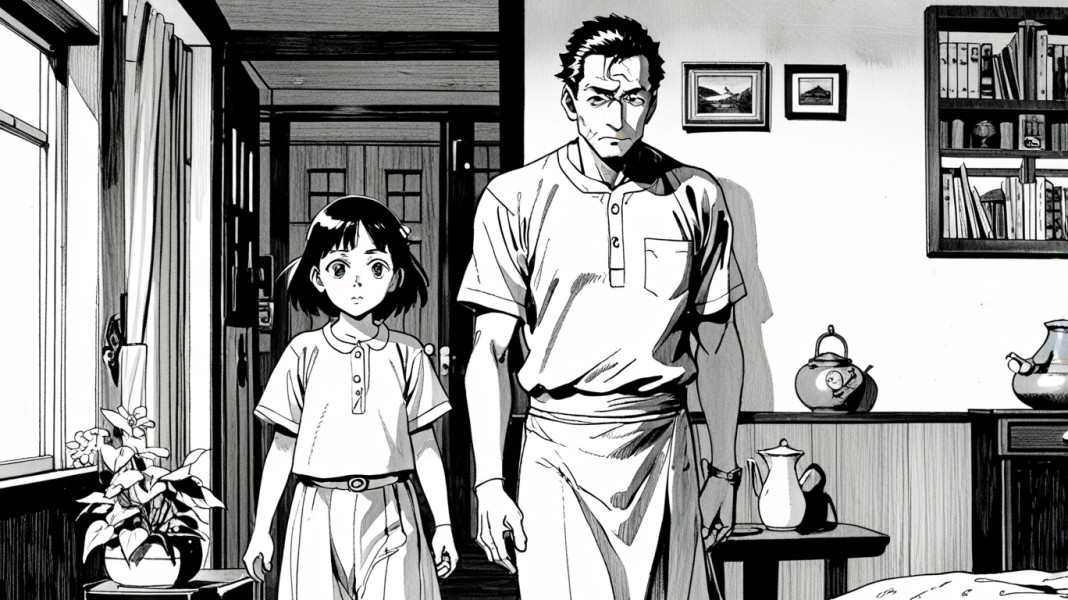 x
x
1947-1950: A New Life
Ahmed settled into a quiet existence in the village of Tahreem. The cat, now healthy and nicknamed "Kismat" (Fate), rarely left his side. His bookkeeping business expanded to several local merchants, and he became a respected figure in the community.
Strange rumors began circulating in the summer of 1947. People spoke of borders being drawn and of India being divided. But Ahmed remained ignorant of the full scope of what was happening. Isolated in his small community, with no access to reliable news and afraid to draw attention by asking too many questions, he was unaware of what was happening.
When neighbors spoke of "Pakistan" as their country, he assumed it was just a regional term he hadn't known before. His fear of being discovered kept him from seeking clarification. He noticed British officers leaving but assumed it was temporary repositioning.
By 1950, Ahmed had formed a deep friendship with Fatima. Her children, Salim and Amina, looked to him as a father figure. They spent evenings on his porch, where he would carefully tell edited stories from his youth, always changing locations and names to protect his identity.
"Tell us about the time you outsmarted the spice thief again," Salim would beg, and Ahmed would oblige with a sanitized version of how he once evaded British authorities.
Politics and Puzzles
One evening in late 1950, Ahmed sat with a group of men at the local tea shop. The conversation turned to politics.
"Liaquat Ali Khan is taking Pakistan in the right direction," said Ibrahim, the fabric merchant.
Ahmed frowned. "Liaquat Ali Khan? The Muslim League representative? What authority does he have to determine direction?"
The men fell silent, staring at him.
"Brother Ahmed," Ibrahim said slowly, "Liaquat Ali Khan is our Prime Minister."
"Prime Minister? Of what province?"
The silence grew uncomfortable.
"Of Pakistan," Ibrahim replied cautiously. "Our nation. Since independence from the British in '47."
Ahmed felt the room spin around him. Independence? 1947? A separate nation called Pakistan?
"Forgive me," he mumbled, rising shakily. "I've been... focused on my accounts. Politics never interested me."
That night, Ahmed couldn't sleep. Everything he had fought for, everything he had sacrificed for—had it actually happened? And what was this Pakistan? Where was India in all this?
The Low Point
By 1953, Ahmed had pieced together the truth through careful conversations and occasional newspapers. The British had left. India had been partitioned into two countries. His homeland was free but divided along religious lines—something he and his Hindu, Muslim, and Sikh compatriots in the independence movement had fought against.
Worse still, he learned of the bloodshed that had accompanied pthe artition. Millions displaced, hundreds of thousands killed. His beloved Delhi now in another country.
One night, he broke down to Fatima, revealing glimpses of his true identity.
"Sometimes I wonder if my life has any meaning," he confessed. "Everything I worked for happened without me. And not as we dreamed it would."
Fatima took his hand. "Your life has meaning to me. To my children. To this community."
But the question tormented him: Should he reclaim his identity? Return to India? The world had moved on without Harshad Mehta. Perhaps he no longer belonged anywhere.
ns3.131.13.93da2





















